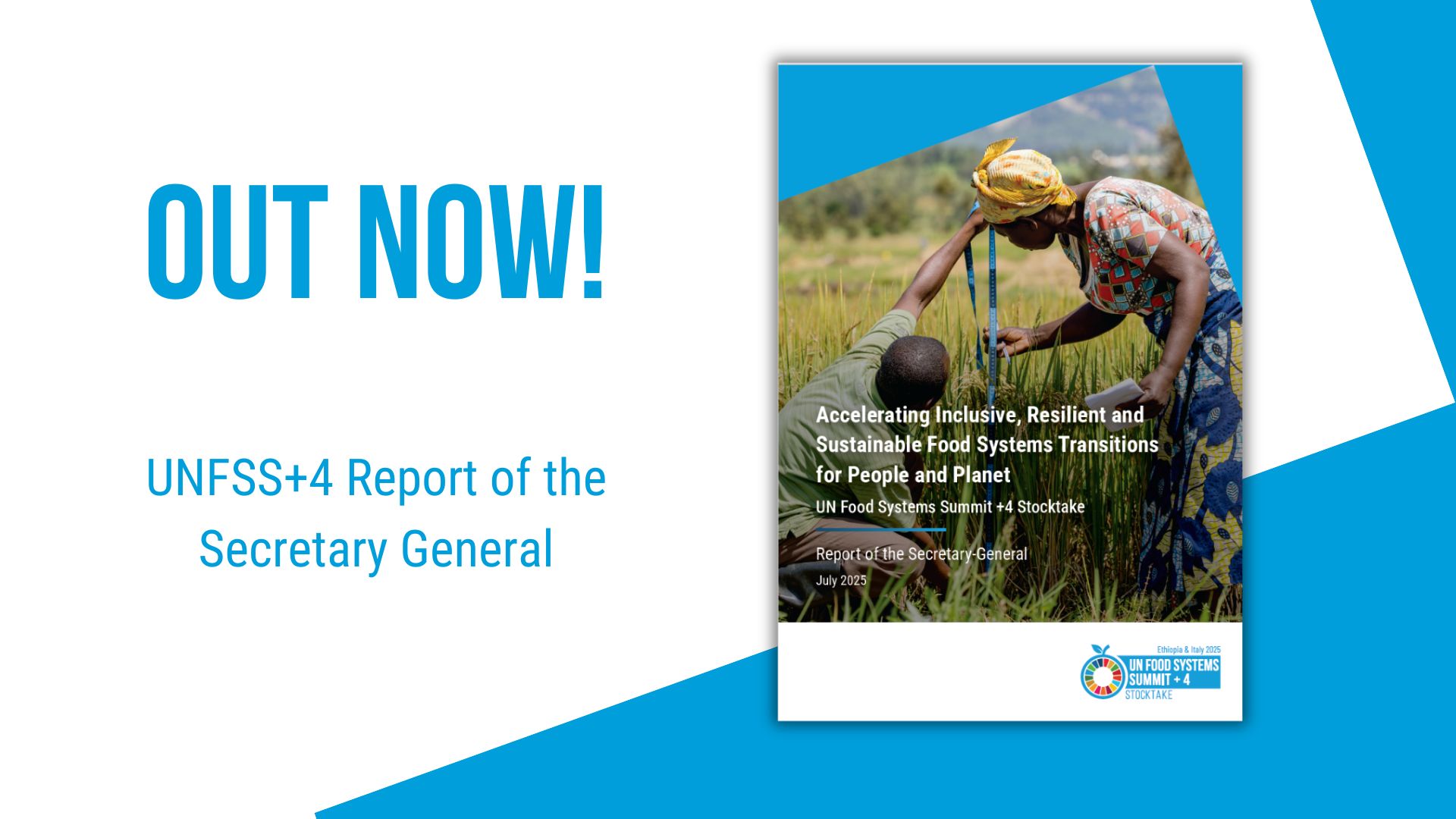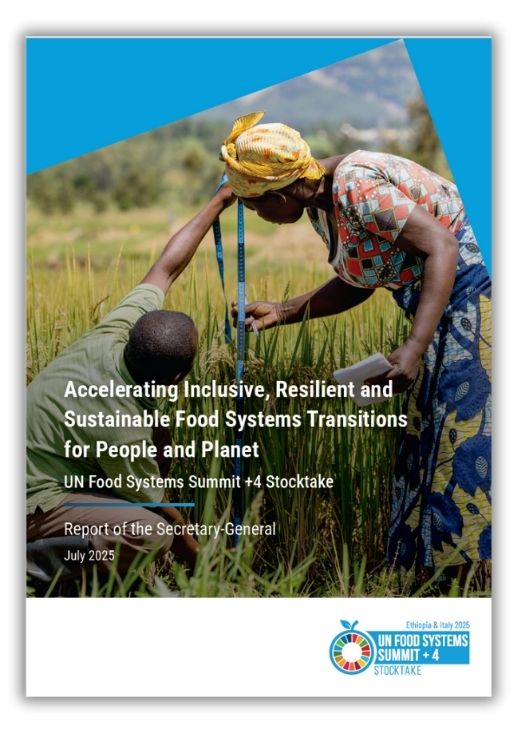Launch of UNFSS+4 Report: Scaled-up action needed to transform food systems by 2030

28 July 2025 – Addis Ababa The United Nations today launched the Report of the Secretary-General for the Second Food Systems Summit Stocktake (UNFSS+4), calling for accelerated action to transform the world’s food systems as a cornerstone of delivering the 2030 Agenda for Sustainable Development. The report comes at a pivotal moment, five years before the SDG deadline, and outlines both the growing momentum and the urgent need to scale up inclusive, rights-based, and resilient food systems transformation globally.
The 2021 United Nations Food Systems Summit marked a turning point by recognizing food systems as fundamental to achieving all 17 Sustainable Development Goals. Two years later, the first Stocktake (UNFSS+2) reaffirmed countries’ commitments. Now, the UNFSS+4 Report reveals that a more coordinated and diverse community of governments, UN agencies, civil society, Indigenous Peoples, youth, farmers, businesses and others is working together to align food systems pathways with broader national and global development goals.
The Report notes that by 2025, 128 countries had developed national food systems transformation pathways, with 155 having appointed National Convenors. Of these, 39 countries revised and updated their pathways into more actionable implementation plans. In a significant increase in accountability, 112 countries voluntarily submitted progress reports in 2025, up from 101 in 2023.
Key trends from the report include:
- The right to food is gaining ground, with countries placing it at the heart of national strategies and, in some cases, enshrining it in constitutions and legislation.
- Policy integration is deepening, as governments embed food systems into national development plans, budget frameworks, and climate and biodiversity strategies.
- Governance mechanisms are becoming more fit-for-purpose, with countries establishing high-level, cross-sectoral bodies to oversee implementation.
- Coalitions and partnerships are expanding, with 20 of the original 31 UNFSS Coalitions of Action continuing to provide critical support through advocacy, technical assistance and financing.
- Inclusivity is being prioritized, with governments advancing policies that centre women, youth, Indigenous Peoples, persons with disabilities and smallholder producers.
- UN support is intensifying, with Resident Coordinators and UN Country Teams working closely with governments to align efforts across agencies and sectors.
- Science, data and technology are driving change, with increased investments in AI, digital tools and evidence-based decision-making.
- Financing is mobilizing, though challenges remain. Countries report reallocating national budgets, accessing climate funds, and engaging with regional and international financial institutions, including through blended finance and innovative instruments.
As the world approaches the halfway mark between the 2021 Summit and the 2030 deadline, the UNFSS+4 Report emphasizes the critical role of the multilateral system in delivering resilience and solutions. Looking ahead, global milestones such as the World Summit for Social Development and COP30 are expected to build on the outcomes of UNFSS+4, linking food systems transformation to decent jobs, energy access and affordability, digital connectivity, education, employment and social protection, and climate change, biodiversity loss and pollution.
 The UNFSS+4 Report of the Secretary-General is available here. |
